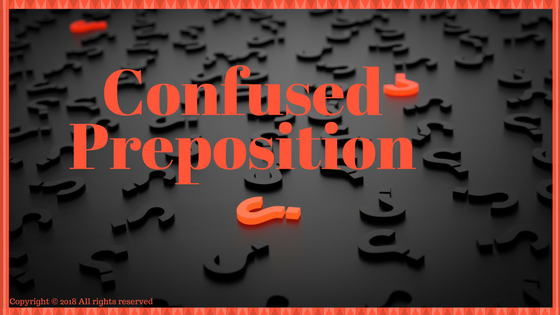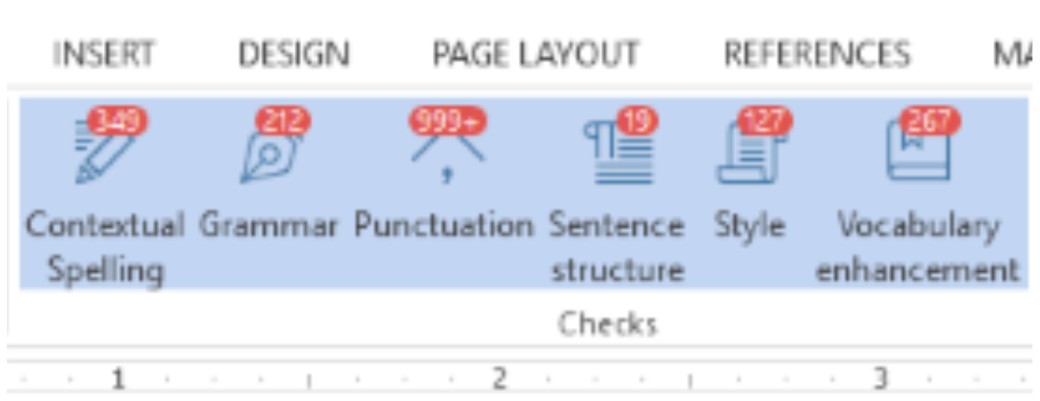Spaces, The Final Frontier
There seems to be some debate online and in the blogosphere about spacing after punctuation. I’ve talked about spacing before because I used to do it wrong and once in a while I catch myself double spacing. I have read articles arguing both single and double spacing after punctuation is correct. However, I found a vast majority that for manuscripts being submitted to literary agencies and publishers they want to see single spaces after punctuation. I have consulted with industry professionals and they all say single space only. Why is that? I’ve summed it up for you.
Back in the day when typewriters were the only form of typeset commonly used, all the letters took up the same amount of space, the typeset was visually ‘gappy.’ It didn’t matter if it was an i or a w or a , or . Thus to create a visual break a double space was used after all punctuation.
Today with the use of computers the industry standard for novels and general writing is a single space after punctuation. Now I know What people are going to say. “But I was taught to double space.” Yes, and so was I. Because those teaching learned double space. We teach what we learned ourselves. There is an air of stubbornness about this subject that is fascinating and odd. “It’s how I always did it, and I’m not stopping for anyone.” That’s fine, but if that level of stubbornness is displayed over something so minor (and easy to fix), the writer might be deemed inflexible and hard to work with and an agent or publisher might pass. While our books are our babies and we pour our heart and souls into them, I was given some golden advice from a trusted industry professional.
“If you are unwilling to change anything in your manuscript, edit or even revise to an agent or publishers request then traditional publishing may not be for you. Be flexible, willing to change, learn and grow. They know what they are doing and what will sell.”
I know it sounds harsh, but it’s true. How many times have I tolled over my manuscript? Changing things here and there, it can be an unending task. So why would I stop, submit to an agent or publisher and then say that it’s perfect and no I won’t change that paragraph, setting or the double spaces after punctuation?
The benefits of single space:
The single space saves on space on the page. Seriously, in a book of 410 pages single spaced if I were to double space after just the periods it would add one full page, more if I were to do all punctuation. In this document there 5277 spaces removed when I went from double-spaced to single and ONLY after periods. Imagine how much more it would be if it were with all punctuation.
Honestly, when I found out I needed to reformat three completed 400+ page manuscripts to single space, I was floored and exasperated. Damn, that’s going to take forever! No, it isn’t. All I did was make a list of ending punctuation where a double space would follow. Such as:
Periods, commas, semicolons, colons, exclamation points, question marks, and quotation marks.
“ ‘ ? ! . ; : ) & @
(Use spaces before and after @ symbol except when it’s in an email.)
I then went to the find and replace feature(indicated by the red arrow below)
A box will pop up to “Find what:” this is where I will type a period with two spaces after it then, enter a period in “Replace with:” with only one space after the period. I can then either “Find next and Replace” one by one or I can “Replace All.”
I merely repeated this for all punctuation.
These do not get spaces:
Dashes Wide-eyed. “I was going to-” Ten-year-old
Slashes Either/or This/that
Special Characters % # $ The #5 was actually $5.00. 10%
The bottom line is if you want to double space go for it. It seriously only took me about a week to break myself of the double space habit. (I still do from time to time. Especially if I’m tired.) I have researched this subject on an off for a few years now (when it comes up), and I can say that the current majority says double space isn’t necessary or desired.
Now for a real kick in the pants, the newer generation is teaching themselves to write without spaces after punctuation at all. Why? Texting and laziness. I can just imagine all their English teachers cringing or pouring an extra glass of wine as they grind their eyes across their writing.
One article or blog will say one space others will be adamant it’s still two. I go by what the current professionals tell me, the ones working in the industry. Now if a teacher says to double space, then follow their instruction, but when an editor, publisher and professional writers all say single, I’ll follow their advice because I am sending my manuscript to them not my high school teacher from many moons ago.
My advice about spacing after punctuation
Single is industry standard. If you’re going to self-publish, then it’s up to you. If you’re looking at traditional publishing, conforming to that standard is necessary. P.S. that Search and Find feature is totally my favorite tool. Never use no-spaces after punctuation. Ever. Just don’t. It’s not natural to read without a space break between sentences. Single or double after punctuation is ultimately up to you, just be consistent.
Sheryl
Copyright © 2018 All rights reserved
https://onedailyprompt.wordpress.com/2018/08/14/your-daily-word-prompt-natural-august-13th-2018/



























